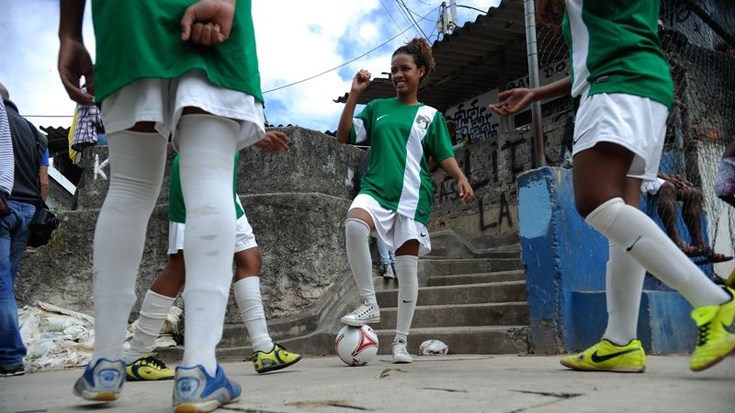From bananas thrown at players to insults from their employers, the most recent manifestations of racism in sports are an indicator of how deeply-rooted discrimination against Afro-descendant people remains, even in Latin America, where this group accounts for 50% of the poor population.
Recently, social networks exploded following a racist incident against Barcelona’s Dani Alves during a soccer match: a fan in the stands threw a banana at him. The soccer player casually picked it up and took a bite.
At the same time, another wave of indignation hit the social networks in the United States after the owner of the Los Angeles Clippers basketball team made a racial slur against African-Americans.
The hashtags #somostodosmacacos and #ClippersOwnerIsaRacist were among the most used on Twitter this week. In the case of Brazil, the incident generated a counter response from activists (with #nãosomosmacacos), who complained that the original hashtag only reinforced prejudice against Afro-Brazilians.
Controversy notwithstanding, an increasing number of Brazilians are defining themselves as Afro-descendants: between 2000 and 2010, the percentage of individuals defining themselves as black on the census rose from 6.2% to 7.6%, according to the Brazilian Geography and Statistics Institute (IBGE). If those who define themselves as “brown” are included, 50% of all Brazilians are of African descent.
This “increase” in the black population is due to the fact that the 2010 census enabled survey respondents to identify their race. As a census, this method covered all Brazilian households rather than just a statistical sample. This phenomenon is also part of “a broader global movement to recover ethnic identities,” according to World Bank expert Fabio Pittaluga.
In the rest of Latin America, however, it is still difficult to identify the size and distribution of the Afro-descendent population since not all censuses includes questions on race. Notable exceptions are Colombia –on whose 2005 census 10% of the population defined themselves as black– Cuba, Ecuador, El Salvador, Costa Rica, Puerto Rico and Venezuela.
Countries such as Peru or Guatemala, for example, are known for their indigenous heritage, but also have a black population that is as unknown as it is discriminated against.

